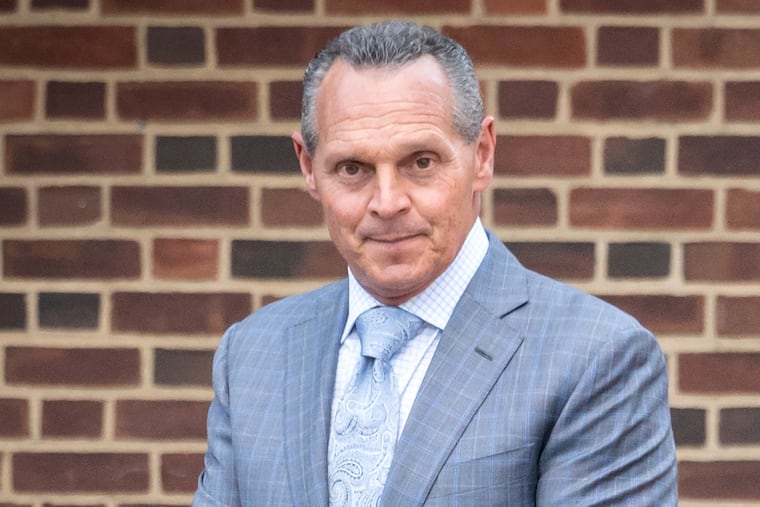Reputed Philly mob underboss sentenced to five years in prison as organized crime in the city dwindles
A federal judge sentenced Steven Mazzone to the maximum sentence under a deal he had reached with prosecutors.

The reputed underboss of what remains of the Philadelphia mob was sentenced to five years in prison Thursday in the latest jail term to be handed out in a major strike by federal prosecutors against organized crime in the city.
Steven Mazzone, 59, was given the maximum term possible under a plea deal he struck with prosecutors when he pleaded guilty in June to racketeering conspiracy, extortion, loan-sharking, and illegal gambling. Senior U.S. District Judge R. Barclay Surrick told Mazzone he doubted any sentence would change him, noting that he had been was convicted of similar crimes in 2001.
In a courtroom crowded with two dozen of Mazzone’s relatives and friends, two of his grown daughters pleaded for mercy and said he had been the family’s rock during a series of recent tragedies. They said he had been a key caretaker for his mother, who suffers from dementia, and rallied to them after their mother — and his ex-wife — was killed in a domestic murder-suicide last December.
But Assistant U.S. Attorney Justin Ashenfelter said Mazzone had spurned a chance to leave his life of crime after serving about nine years behind bars on his last conviction. “Instead, he got out of prison and he got promoted within the mob,” the prosecutor said
Under the plea deal, Mazzone was facing a sentence of between 45 and 60 months. Ashenfelter asked for and got the full five years.
“The defendant is one of the highest-ranking members of the Philadelphia mob,” Ashenfelter said. “That’s who he is. That’s how he projects himself on the street.”
Though less well-known, Mazzone is the latest in a string of alleged top Mafia figures to be convicted by federal prosecutors. Others over the decades include Nicky Scarfo, John Stanfa, Ralph Natale, and Joseph Merlino
In a statement Thursday, U.S. Attorney Jacqueline C. Romero said that “even though the Philadelphia mob has been weakened over the decades,” prosecutors would keep pursuing it “until the mob is nothing but a memory that lives on in movies.”
Mazzone was among 15 defendants in a sweeping case made public in 2020 that targeted 10 alleged members and five associates of the Philadelphia mob, including his younger brother and former father-in-law. Of the 15 defendants, 14 have pleaded guilty. One defendant died while his trial was pending.
Federal prosecutors and the FBI, working with the Pennsylvania State Police and Philadelphia police, built the case on tapes made by informants who wore wires, along with evidence from wiretaps, camera surveillance, and law enforcement and civilian witnesses.
In the most unusual part of the indictment, prosecutors say Mazzone was caught on tape participating in a 2015 mob initiation ceremony in South Philadelphia in which his brother and four others became made members of the crime family. In the secret session, the initiates were captured pledging to “burn in hell forever if I betray my friends.”
On the tape, quoted by prosecutors in a sentencing memo, Mazzone said at one point: “We got to get a hold back on Atlantic City. … That’s what I want. We have to get that back.”
Prosecutors said the “acting boss” of the family also took part in the ceremony, identifying him in court papers only as “M.L.” That man would be the seventh or so leader of the Philadelphia mob since Angelo Bruno was shot to death in 1980, according to court documents.
A year after Bruno’s murder, his successor, Philip Testa, was killed by a bomb on his South Philly doorstep and, in the decades that followed, other bosses were sidelined by long prison terms in a string of cases brought by federal prosecutors.
In the so-called mob wars that flared for years after Bruno’s death, prosecutors said informants variously named Mazzone as both the pursued and the pursuer in a series of violent encounters. Among other allegations, authorities said, Mazzone shot to death a rival mob member in 1993. That same year, authorities have said, Mazzone’s enemies schemed to kill him, but the plot failed.
In the 2001 conviction, a jury acquitted Mazzone of allegations related to the killing but convicted him on racketeering, extortion, and gambling charges.